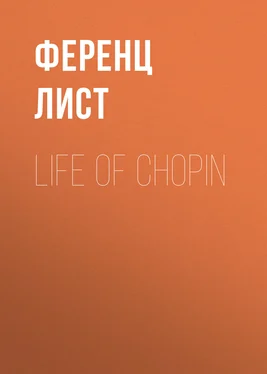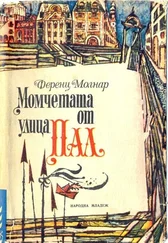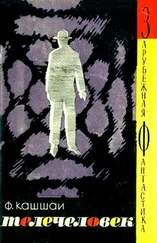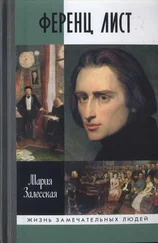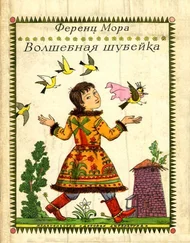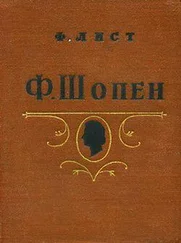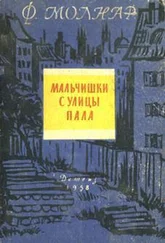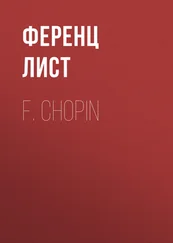Ференц Лист - Life of Chopin
Здесь есть возможность читать онлайн «Ференц Лист - Life of Chopin» — ознакомительный отрывок электронной книги совершенно бесплатно, а после прочтения отрывка купить полную версию. В некоторых случаях можно слушать аудио, скачать через торрент в формате fb2 и присутствует краткое содержание. Жанр: foreign_antique, foreign_home, music_dancing, на английском языке. Описание произведения, (предисловие) а так же отзывы посетителей доступны на портале библиотеки ЛибКат.
- Название:Life of Chopin
- Автор:
- Жанр:
- Год:неизвестен
- ISBN:нет данных
- Рейтинг книги:5 / 5. Голосов: 1
-
Избранное:Добавить в избранное
- Отзывы:
-
Ваша оценка:
- 100
- 1
- 2
- 3
- 4
- 5
Life of Chopin: краткое содержание, описание и аннотация
Предлагаем к чтению аннотацию, описание, краткое содержание или предисловие (зависит от того, что написал сам автор книги «Life of Chopin»). Если вы не нашли необходимую информацию о книге — напишите в комментариях, мы постараемся отыскать её.
Life of Chopin — читать онлайн ознакомительный отрывок
Ниже представлен текст книги, разбитый по страницам. Система сохранения места последней прочитанной страницы, позволяет с удобством читать онлайн бесплатно книгу «Life of Chopin», без необходимости каждый раз заново искать на чём Вы остановились. Поставьте закладку, и сможете в любой момент перейти на страницу, на которой закончили чтение.
Интервал:
Закладка:
During many centuries, the civilization of Poland was entirely peculiar and aboriginal; it did not resemble that of any other country; and, indeed, it seems destined to remain forever unique in its kind. As different from the German feudalism which neighboured it upon the West, as from the conquering spirit of the Turks which disquieted it on the East, it resembled Europe in its chivalric Christianity, in its eagerness to attack the infidel, even while receiving instruction in sagacious policy, in military tactics, and sententious reasoning, from the masters of Byzantium. By the assumption, at the same time, of the heroic qualities of Mussulman fanaticism and the sublime virtues of Christian sanctity and humility, [Footnote: It is well known with how many glorious names Poland has enriched the martyrology of the Church. In memorial of the countless martyrs it had offered, the Roman Church granted to the order of Trinitarians, or Redemptorist Brothers, whose duty it was to redeem from slavery the Christians who had fallen into the hands of the Infidels, the distinction, only granted to this nation, of wearing a crimson belt. These victims to benevolence were generally from the establishments near the frontiers, such as those of Kamieniec-Podolski.] it mingled the most heterogeneous elements, and thus planted in its very bosom the seeds of ruin and decay.
The general culture of Latin letters, the knowledge of and love for Italian and French literature gave a lustre and classical polish to the startling contrasts we hare attempted to describe. Such a civilization must necessarily impress all its manifestations with its own seal. As was natural for a nation always engaged in war, forced to reserve its deeds of prowess and valor for its enemies upon the field of battle, it was not famed for the romances of knight-errantry, for tournaments or jousts; it replaced the excitement and splendor of the mimic war by characteristic fetes, in which the gorgeousness of personal display formed the principal feature.
There is certainly nothing new in the assertion, that national character is, in some degree, revealed by national dances. We believe, however, there are none in which the creative impulses can be so readily deciphered, or the ensemble traced with so much simplicity, as in the Polonaise. In consequence of the varied episodes which each individual was expected to insert in the general frame, the national intuitions were revealed with the greatest diversity. When these distinctive marks disappeared, when the original flame no longer burned, when no one invented scenes for the intermediary pauses, when to accomplish mechanically the obligatory circuit of a saloon, was all that was requisite, nothing but the skeleton of departed glory remained.
We would certainly have hesitated to speak of the Polonaise, after the exquisite verses which Mickiewicz has consecrated to it, and the admirable description which he has given of it in the last Canto of the "Pan Tadeusz," but that this description is to be found only in a work not yet translated, and, consequently, only known to the compatriots of the Poet. 2 2 It has been translated into German.—T.
It would have been presumptuous, even under another form, to have ventured upon a subject already sketched and colored by such a hand, in his romantic Epic, in which beauties of the highest order are set in such a scene as Ruysdael loved to paint; where a ray of sunshine, thrown through heavy storm-clouds, falls upon one of those strange trees never wanting in his pictures, a birch shattered by lightning, while its snowy bark is deeply stained, as if dyed in the blood flowing from its fresh and gaping wounds. The scenes of "Pan Tadeusz" are laid at the beginning of the present century, when many still lived who retained the profound feeling and grave deportment of the ancient Poles, mingled with those who were even then under the sway of the graceful or giddying passions of modern origin. These striking and contrasting types existing together at that period, are now rapidly disappearing before that universal conventionalism which is at present seizing and moulding the higher classes in all cities and in all countries. Without doubt, Chopin frequently drew fresh inspiration from this noble poem, whose scenes so forcibly depict the emotions he best loved to reproduce.
The primitive music of the Polonaise, of which we have no example of greater age than a century, possesses but little value for art. Those Polonaises which do not bear the names of their authors, but are frequently marked with the name of some hero, thus indicating their date, are generally grave and sweet. The Polonaise styled "de Kosciuszko," is the most universally known, and is so closely linked with the memories of his epoch, that we have known ladies who could not hear it without breaking into sobs. The Princess F. L., who had been loved by Kosciuszko, in her last days, when age had enfeebled all her faculties, was only sensible to the chords of this piece, which her trembling hands could still find upon the key-board, though the dim and aged eye could no longer see the keys. Some contemporary Polonaises are of a character so sad, that they might almost be supposed to accompany a funeral train.
The Polonaises of Count Oginski [Footnote: Among the Polonaises of Count Oginski, the one in F Major has especially retained its celebrity. It was published with a vignette, representing the author in the act of blowing his brains out with a pistol. This was merely a romantic commentary, which was for a long time mistaken for a fact.] which next appeared, soon attained great popularity through the introduction of an air of seductive languor into the melancholy strains. Full of gloom as they still are, they soothe by their delicious tenderness, by their naive and mournful grace. The martial rhythm grows more feeble; the march of the stately train, no longer rustling in its pride of state, is hushed in reverential silence, in solemn thought, as if its course wound on through graves, whose sad swells extinguish smiles and humiliate pride. Love alone survives, as the mourners wander among the mounds of earth so freshly heaped that the grass has not yet grown upon them, repeating the sad refrain which the Bard of Erin caught from the wild breezes of the sea:
"Love born of sorrow, like sorrow is true!"
In the well known pages of Oginski may be found the sighing of analogous thoughts: the very breath of love is sad, and only revealed through the melancholy lustre of eyes bathed in tears.
At a somewhat later stage, the graves and grassy mounds were all passed, they are seen only in the distance of the shadowy background. The living cannot always weep; life and animation again appear, mournful thoughts changed into soothing memories, return on the ear, sweet as distant echoes. The saddened train of the living no longer hush their breath as they glide on with noiseless precaution, as if not to disturb the sleep of those who have just departed, over whose graves the turf is not yet green; the imagination no longer evokes only the gloomy shadows of the past. In the Polonaises of Lipinski we hear the music of the pleasure-loving heart once more beating joyously, giddily, happily, as it had done before the days of disaster and defeat. The melodies breathe more and more the perfume of happy youth; love, young love, sighs around. Expanding into expressive songs of vague and dreamy character, they speak but to youthful hearts, cradling them in poetic fictions, in soft illusions. No longer destined to cadence the steps of the high and grave personages who ceased to bear their part in these dances, [Footnote: Bishops and Primates formerly assisted in these dances; at a later date the Church dignitaries took no part in them.] they are addressed to romantic imaginations, dreaming rather of rapture than of renown. Meyseder advanced upon this descending path; his dances, full of lively coquetry, reflect only the magic charms of youth and beauty. His numerous imitations have inundated us with pieces of music, called Polonaises, out which have no characteristics to justify the name.
Читать дальшеИнтервал:
Закладка:
Похожие книги на «Life of Chopin»
Представляем Вашему вниманию похожие книги на «Life of Chopin» списком для выбора. Мы отобрали схожую по названию и смыслу литературу в надежде предоставить читателям больше вариантов отыскать новые, интересные, ещё непрочитанные произведения.
Обсуждение, отзывы о книге «Life of Chopin» и просто собственные мнения читателей. Оставьте ваши комментарии, напишите, что Вы думаете о произведении, его смысле или главных героях. Укажите что конкретно понравилось, а что нет, и почему Вы так считаете.
